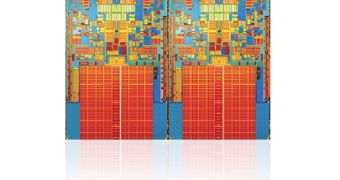Apple has filed a new application with the US Patent & Trademark Office for Grand Central, Apple's new technology used by Mac OS X 10.6 (Snow Leopard) to handle multiple processing cores. Snow Leopard is the latest iteration of the Mac OS, slated for release in the first half of 2009.
Thanks to the eagle-eyed folks at Macnn, news broke out that Apple applied for a trademark on the name “Grand Central.” Filed under USPTO serial number 77626943 and classified under “009” the trademark is for “computer software” and “computer operating system software.” It is now being speculated that Google might have a say here, given that the search engine giant holds all rights for the “Grand Central” telephony service.
“'Grand Central,' a new set of technologies built into Snow Leopard, brings unrivaled support for multicore systems to Mac OS X,” Apple says. “More cores, not faster clock speeds, drive performance increases in today’s processors. Grand Central takes full advantage by making all of Mac OS X multicore aware and optimizing it for allocating tasks across multiple cores and processors. Grand Central also makes it much easier for developers to create programs that squeeze every last drop of power from multicore systems,” the company reveals on a page entirely dedicated to explain the “core innovation” in the upcoming Snow Leopard.
On the same page, Apple points out to another powerful Snow Leopard technology, OpenCL (Open Computing Language). OpenCL is a new compute API that allows developers to tap into the parallel computing power of GPUs, providing developers such as those at NVIDIA with new programming solutions. “With GPUs approaching processing speeds of a trillion operations per second, they’re capable of considerably more than just drawing pictures. OpenCL takes that power and redirects it for general-purpose computing,” Apple adds. OpenCL was nearly completed in under six months by industry leaders like AMD, Intel, ARM, 3DLabs, and Qualcomm. Just this week, the Khronos Group announced the ratification and public release of the Apple-proposed OpenCL 1.0 specification.

 14 DAY TRIAL //
14 DAY TRIAL //